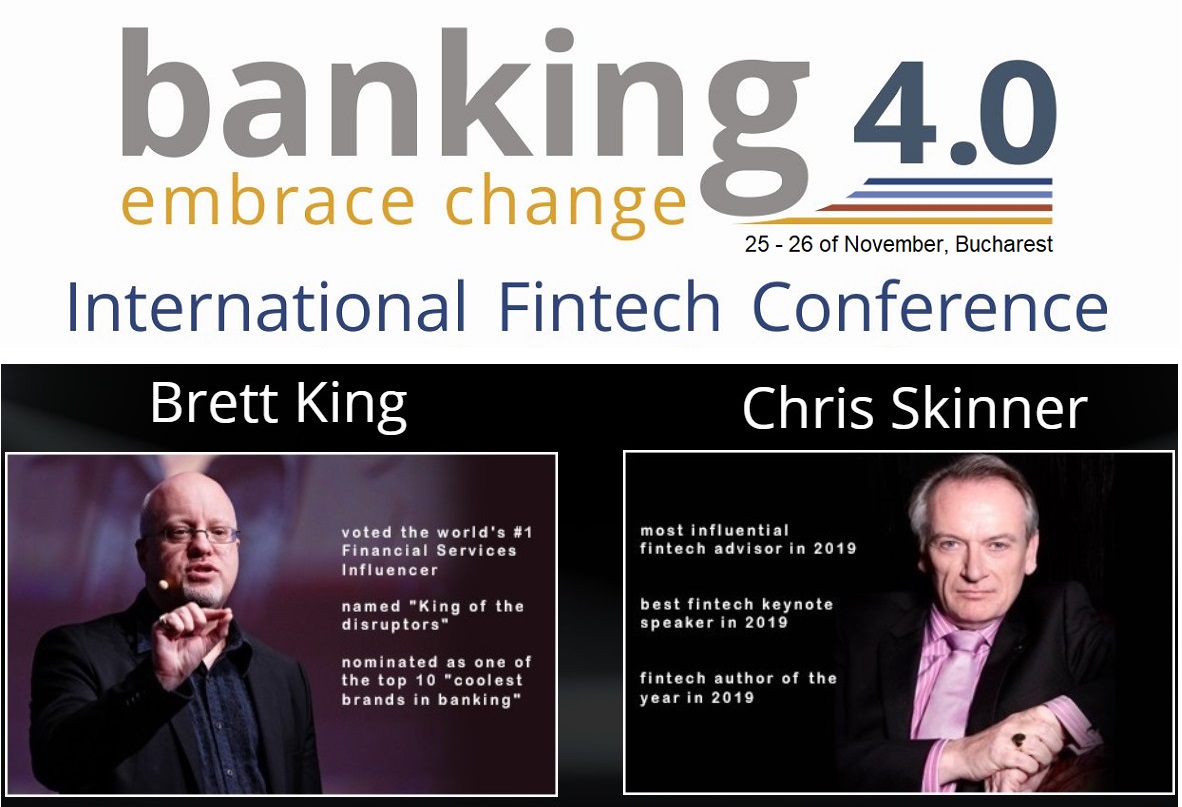
The number of great speakers from Banking 4.0 has exceeded 20 and we are still counting. The list is opened by Brett King and Chriss Skinner, two of the top worldwide futurists, best-sellers author and keynote speakers in the field of fintech banking.
This week, other major international speakers announced their participation. So far we have experts from almost 15 countries: Belgium, Hungary, Israel, Italy, Luxembourg, Poland, Republic of Moldova, Spania, Sweden, Turkey, United Kingdom, U.S and of course Romania.
Anna Maj – Fintech Leader PwC
Anna has 19 years of experience in banking and payments industries with a focus on CEE (Citigroup, T-Mobile, mBank, PwC).
Anna drives innovation in the European FinTech ecosystem. Her particular expertise lies in the field of innovative digital payment solutions, acquiring, merchant services and digitally enabled financial products (e-commerce, open banking), acquired in the strategy, innovation and product management roles.
Anna introduced one of the first online payment gateways in the CEEMEA region as well as the first digital wallet and the mobile payment platform. Managed the implementation of the first local mobile banking apps and the first local mobile payments initiative.
In her current role at PwC, Anna is responsible for building cooperation models between banks and FinTech partners, particularly with regard to the Open Banking, Payments as well as Conversational AI projects with a focus on Central Europe.
Featured in the global TOP 100 Women in FinTech 2019 List (Lattice80, March 2019) “20 Most Influential Women in Payments” (Cashless.pl, 2019) and “Top 20 Women in FinTech” Report (Institute of Innovative Economy, 2017).
Duke Prins – CEO of Payconiq International
Prins became CEO of Payconiq in 2016, when the company transitioned from a startup with an MVP to an international scale-up. He has over 20 years of experience in international management, corporate finance, and advisory. Duke was also co-founder of bunq, a European neo-bank and transaction platform.
Payconiq is a European payments fintech active in Benelux. With the support of major European banks, Payconiq leads the transformation of the payment industry through an open-API approach and flexible microservices. 60,000 merchants across Belgium, Luxembourg, and the Netherlands trust Payconiq’s secure, plug-and-play platform. 600,000 consumers use the company’s app for P2P, invoices, in-stores, or online payments.
Payconiq is the first of the numerous payment companies headquartered in Luxembourg to obtain a PIS license. “This license was a necessary step to expand our business from Benelux to Europe. Our ambition is to become Europe’s most wanted mobile payments solution. We are a real alternative to payment cards, as our users can make simple mobile payments on any device, just by having a bank account.”, explained Prins.
After SIBOs 2019 ends, more international experts will be announced on the Banking 4.0 web platform.
This year’s edition of the fintech conference dedicated to emerging technologies and the future of financial services, organized by NOCASH, will be by far the largest event in the company’s history in nearly 20 years. Make sure you don’t miss out and book your ticket here.
Banking 4.0 – „how was the experience for you”
„So many people are coming here to Bucharest, people that I see and interact on linkedin and now I get the change to meet them in person. It was like being to the Football World Cup but this was the World Cup on linkedin in payments and open banking.”
Many more interesting quotes in the video below: